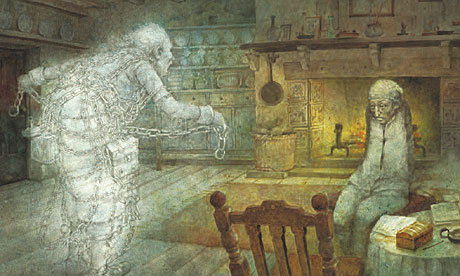
Last Tuesday, the Guardian carried a heart-warming article about someone who'd just died called Bill Stone. What made Bill newsworthy was that he was one of the country's very last Victorians. He was born in September 1900, four months before the Queen and Empress died. There can't be more than half-a-dozen of his vintage left.
In his humble way, Bill incarnated "Victorian values". The son of a sailor, he tried to join the Royal Navy, aged 15, to fight the Hun. He had to wait till he was 18, and was at the recruiting office on his birthday. He served as a stoker – not with a sword but a shovel. He remained a sailor, serving three kings, until after the second world war, rising (if that's the word) to the rank of chief stoker. His marriage, in 1938, lasted until his wife died half a century later. In civvy street he ran a corner tobacconist's. His life was happy, his motto was "Keep Going" – which he did until his 109th year. Newborn as he was when it ended, Stone's life explains much about the huge global success that Britain enjoyed in the 19th Century. He and his kind believed in country, King (or Queen), and God. A whole cluster of other beliefs spun off from this core: duty, decency, marital fidelity, paying your way, doing your bit, playing fair. Much of it seems to us like what Marxists call "false consciousness". Delusion. But those delusions combined to create in the Victorians a national confidence that the future was worth investing in. The historian George Kitson Clark (himself born in 1900) located the dynamism of the era in the evangelical revival that imbued Britain's lower classes with a secular religiosity. With it came a willingness to make sacrifices. The Victorians, as a society, invested magnitudes more of their wealth in infrastructure than we (infinitely wealthier, but more hedonistic with our money) care to do.
Look at the Holborn Viaduct constructed in the 1870s, at the huge expense of £2m, and compare it with the Millennium Dome. Which is the more handsome, and which will still be there in a century's time? Walk London streets and underneath the paving stones is a Victorian sewage and sanitation system designed by Joseph Bazalgette. Would any society have built such a thing that (a) didn't believe that cleanliness was next to Godliness or (b) didn't believe in Godliness? Saps that they were. Why build something like St Pancras, simply to keep the rain off your head? If some prehistoric Dawkins, or Pilger, had got to 15-year-old Stone and put the lad straight on the fallacies of Genesis, the iniquities of imperialism, and the unfairness of the English class system ("no social mobility for you, my boy") would he have been so keen to line up for the recruiting sergeant? Would he have "kept going"? An article in the New Scientist argues that Victorian delusion gave Britain an evolutionary advantage. The authors have done a multi-factor analysis on characters from classic Victorian fiction such as Dorothea Brooke, Heathcliff and Dorian Gray and uncover the kinds of interlocking ideological beliefs that create cohesion, collective effort, and self-denial for the greater good.
We read Victorian fiction and are condescending about the death of Nell – "one would need a heart of stone, etc" – the "happy ever after endings", and promote Flashman, not Tom Brown, as our heroic figure. We are proudly unVictorian: disabused, but diffident.

